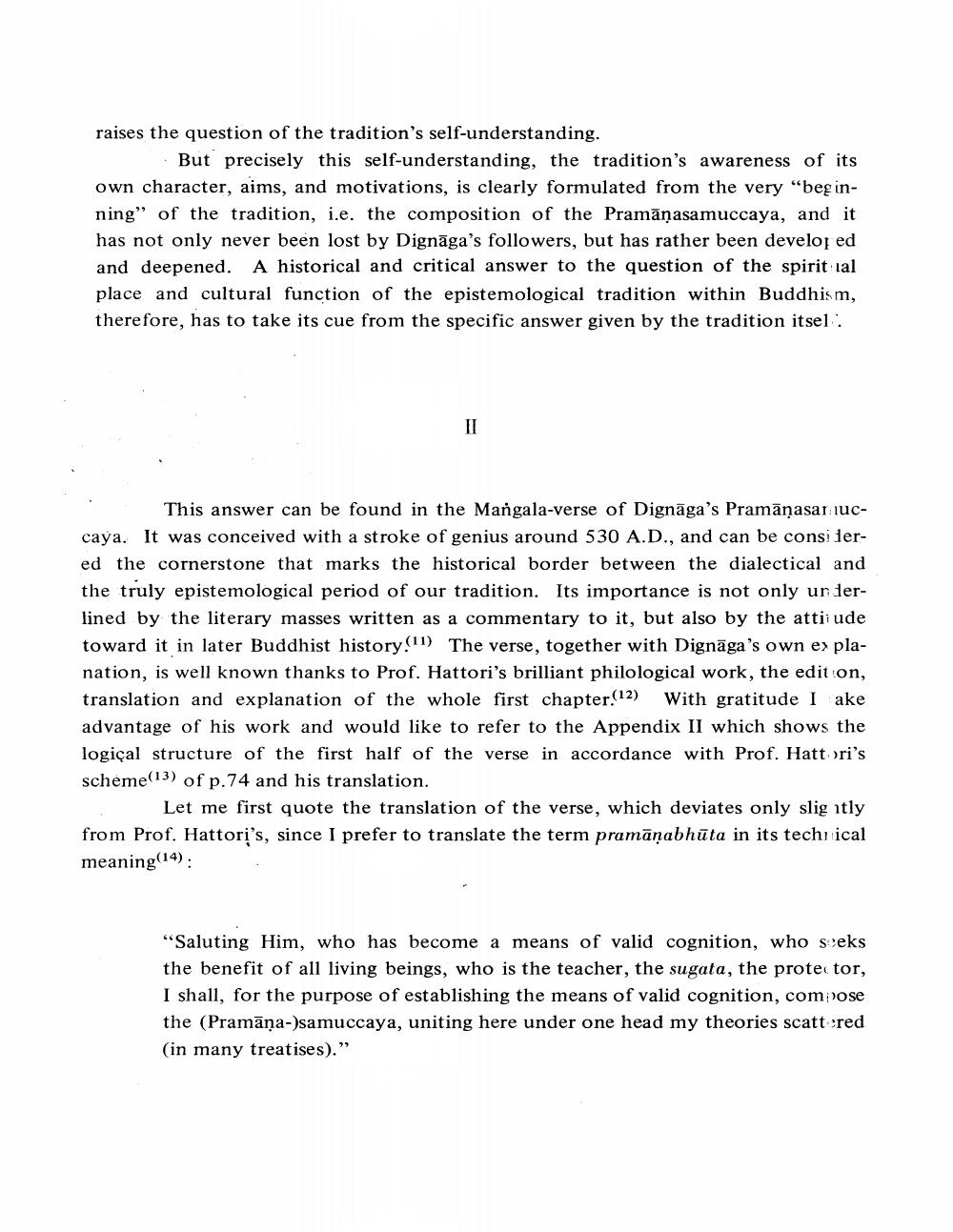Book Title: Spiritual Place Of Epistemological Tradition In Buddhism Author(s): Ernst Steinkellner Publisher: Ernst Steinkellner View full book textPage 7
________________ raises the question of the tradition's self-understanding. But precisely this self-understanding, the tradition's awareness of its own character, aims, and motivations, is clearly formulated from the very "beginning" of the tradition, i.e. the composition of the Pramāṇasamuccaya, and it has not only never been lost by Dignāga's followers, but has rather been develoj ed and deepened. A historical and critical answer to the question of the spirit ial place and cultural function of the epistemological tradition within Buddhism, therefore, has to take its cue from the specific answer given by the tradition itsel. This answer can be found in the Mangala-verse of Dignāga's Pramāṇasan iuccaya. It was conceived with a stroke of genius around 530 A.D., and can be considered the cornerstone that marks the historical border between the dialectical and the truly epistemological period of our tradition. Its importance is not only underlined by the literary masses written as a commentary to it, but also by the attiiude toward it in later Buddhist history:11) The verse, together with Dignāga's own ex planation, is well known thanks to Prof. Hattori's brilliant philological work, the edition, translation and explanation of the whole first chapter.(12) With gratitude I ake advantage of his work and would like to refer to the Appendix II which shows the logical structure of the first half of the verse in accordance with Prof. Hattri's scheme(13) of p. 74 and his translation. Let me first quote the translation of the verse, which deviates only slig itly from Prof. Hattori's, since I prefer to translate the term pramāṇabhūta in its technical meaning(14): "Saluting Him, who has become a means of valid cognition, who seeks the benefit of all living beings, who is the teacher, the sugata, the protetor, I shall, for the purpose of establishing the means of valid cognition, compose the (Pramāņa-)samuccaya, uniting here under one head my theories scattered (in many treatises).”Page Navigation
1 ... 5 6 7 8 9 10 11 12 13 14 15 16 17 18
